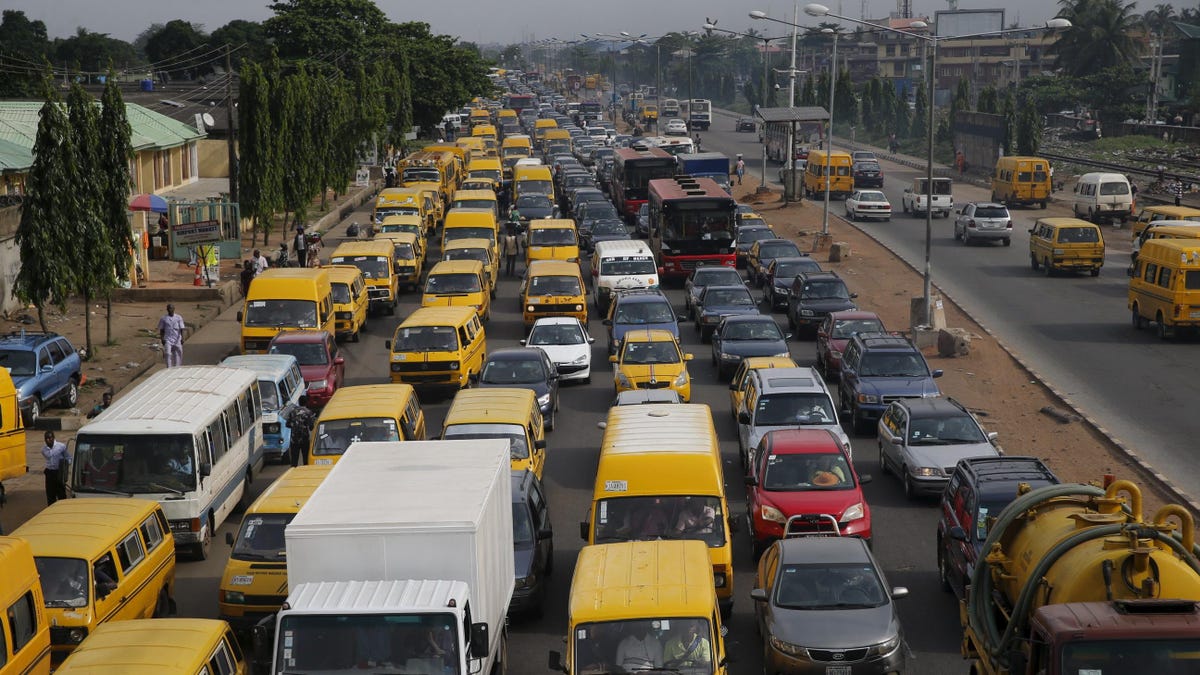Lagos Finally Has a New Metro System, Easing Traffic Congestion
After much anticipation, Lagos, the largest city in Nigeria, has finally launched its new metro system. This development aims to alleviate the city’s notorious traffic congestion, ranked as the worst in the world. Although its completion took ten years longer than expected, the first phase of the Blue Line Rail is now operational, connecting Mile 2 on the mainland with Marina on Lagos Island.
The construction of the second phase, linking Okokomaiko to Mile 2, is set to begin later this year. Additionally, another line, the Red Line, is also under construction. The overall cost for both lines is estimated to be $1.4 billion. This metro system is poised to transform the transportation landscape of Lagos.
Let’s take a closer look at some key figures:
- Lagos is home to 24 million residents.
- A 50% discount on public transport fares has been announced by Babajide Sanwo-Olu, the executive governor of Lagos, with the introduction of the Cowry Card. This reduction makes an end-to-end ride on the Blue Line cost 375 Naira ($0.49).
- On the first day of operations, approximately 800 people used the Lagos metro.
- The Blue Line operates from 6:30am to 10am and from 4pm to 9:30pm.
- Phase 1 of the Blue Line has five stations: Mile 2, Suru-Alaba, Orile Iganmu, National Theatre, and Marina.
- The eventual goal is for the metro line to make over 76 trips each day.
- The Blue Line Rail is equipped with more than 300 CCTV cameras, ensuring safety for passengers. Governor Sanwo-Olu encourages responsible use of the service and warns against any acts of vandalism or disturbances.
- With the metro, a two-hour road journey now only takes 15 minutes, according to Lagos officials.
- Currently, three trains are operational on the Blue Line.
- The daily passenger capacity of the Blue Line is 150,000, with an expected increase to 500,000 once the second phase is completed.
- In total, seven metro lines are planned for the light-rail network, including Red, Blue, Green, Yellow, Purple, Brown, and Orange.
Let’s take a brief look at the timeline of the Lagos metro:
- In 1983, Alhaji Lateef Jakande, the first civilian governor of Lagos state, initiates the vision for a light rail system.
- In 2002, Bola Ahmed Tinubu establishes the Lagos Metropolitan Area Transport Authority (LAMATA), which begins developing a comprehensive transport plan over the span of 30 years.
- In 2010, Babatunde Raji Fashola launches the Lagos light rail project, beginning with the Blue Line.
- In 2012, Lagos signs a $1.5 billion contract with China Civil Engineering Construction Corporation (CCECC) for the construction of the first phase of the Blue Line.
- In 2019, Sanwo-Olu becomes the governor of Lagos and prioritizes the Blue Line rail project.
- In October 2021, the Central Bank of Nigeria announces funding for the metro project, along with three other financial institutions.
- In December 2022, a formal opening ceremony is held to inaugurate the Blue Line, marking an important milestone for Lagos.
- In April 2023, the government misses its deadline for commencing commercial operations on the Blue Line.
- Finally, on September 4, 2023, the metro system begins operating, transporting its first set of passengers, including governor Sanwo-Olu.
Alhaji Lateef Jakande, the first governor of Lagos state, expressed his disappointment at the cancellation of the metro project, believing it would have greatly benefited Nigerians and enhanced transport in Lagos.
A Closer Look at the Lagos Metro Lines
In addition to the Blue Line, Lagos is also developing the Red Line. The Red Line is a 37-km route that connects Marina and Agbado and consists of 11 stations. Although it was initially scheduled to open in the first quarter of this year, the launch has been delayed. Governor Sanwo-Olu states that the Red Line is 95% ready and expects it to be operational by the end of this year.
Related Stories
- Lagos introduces an elevated rail network to improve transportation.
- An infrastructure deficit is contributing to higher living costs in African cities than necessary.
- Residents in Lagos bear the brunt of the city’s worsening air pollution.
Denial of responsibility! Vigour Times is an automatic aggregator of Global media. In each content, the hyperlink to the primary source is specified. All trademarks belong to their rightful owners, and all materials to their authors. For any complaint, please reach us at – [email protected]. We will take necessary action within 24 hours.


